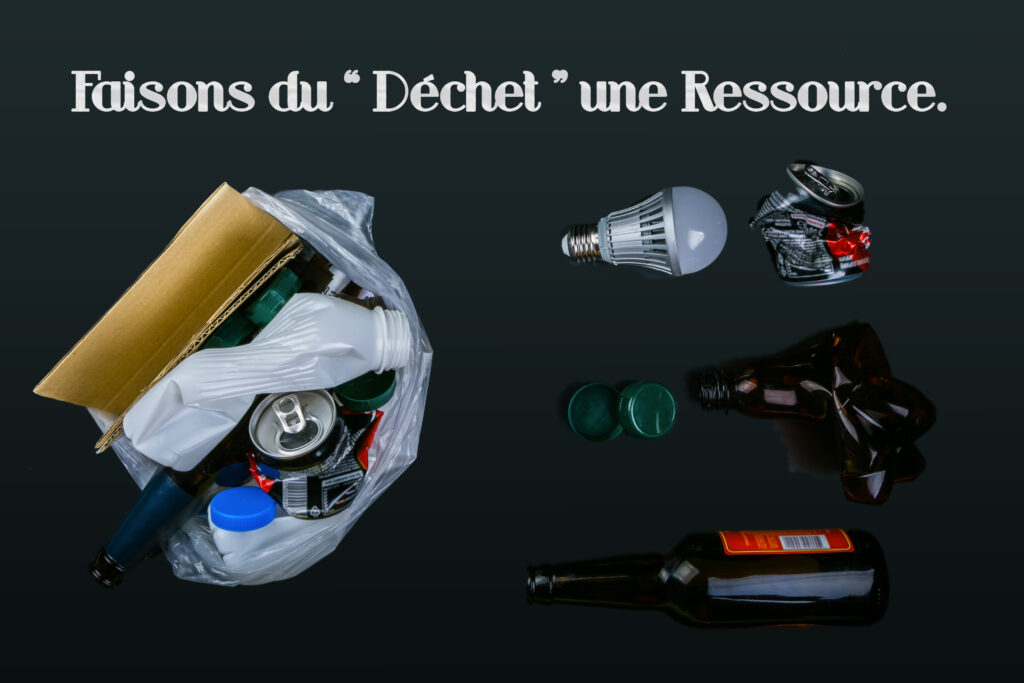a single point of contact with a full range of solutions for the management, recovery, and treatment of your industrial waste




We have created a one-stop solution for the management of all your waste streams, that helps you respect all regulations and reach your financial and environmental goals. This is by fare the simplest and most beneficial solution:.
For you it is




THE LAW OF 1975, THE “ROYAL” LAW AND THE DECREE OF 1994
THE 5 WASTESTREAM DECREE
OFFICE PAPER SORTING
We handle all types of waste streams

Chaque année, un employé génère environ 70kg de papier (source ADEME). Ainsi en France Les Papiers et les Journaux font partis des déchets les plus produits et les mieux recyclés grâce à des techniques en constante amélioration. Il en est de même pour la valorisation des cartons qui suivent des filières bien précises.

Plastic recycling is one of the biggest challenges we face as a society. Plastics require centuries to decompose if left in the environment and their incineration is extremely polluting. Plastics are made of fossil-fuel (when not produced from recycled granulates). Plastics are so convenient that their usage grew by 10x during the past ten years, building a circular supply chain for plastics is more important than ever.

Ferrous and non-ferrous metals are widely spread in industrial activities: construction, automotive, naval, as well as packaging such as cans.

Electronic equipments have short life cycles, which makes the recycling and recovery of the rare components they are made of a top goal. These are complex products, made of a wide set of materials: glass, plastics as well as precious metals and even toxic materials. E-waste recovery is strictly monitored by the European Directive of 2003 (amended in July 2012 and August 2015).

Ordinary industrial waste is generated by industrial companies, retailers, and office spaces include materials such as: cardboards, packaging, glass, textiles, which after being collected and separated, can be sorted and massified to become recycled raw materials.

In France, every year, it is almost 14 million tons of wooden waste that are produced and only 7 million tons are recycled and transformed.
The advantages of the CMP offer
Because the needs of tertiary companies, manufacturers, SMEs, and administrations necessarily differ, we offer tailor-made solutions with a personalized diagnosis and turnkey solutions, specific to each client.
We study together with you the operations on your site and take into account all the technical and environmental constraints in order to better identify the bottlenecks of your waste management strategy.
Thus, thanks to this environmental audit, we have a global vision of your site which then allows us to offer you a progress plan (qualitative, organizational, budgetary, and regulatory).
Naturally, the main areas of development remain higher recovery rates and better sorting.
Once the audit has been validated by the different teams, we can offer the set-up of a recurring service that includes:
Needless to say, we make you work with local service providers to reduce the carbon footprint and we ensure the recovery of your waste by selecting service providers from the Recycling industry.
Finally, we provide you with all the required reporting by the law or for your CSR reporting: traceability, operational performance reports…

Collection modes used for ordinary industrial waste (source ADEME)



CMP is an independent family business created by Dominique MAGUIN in 2007, specialized in recycled raw materials trading and consulting for environemental services companies.